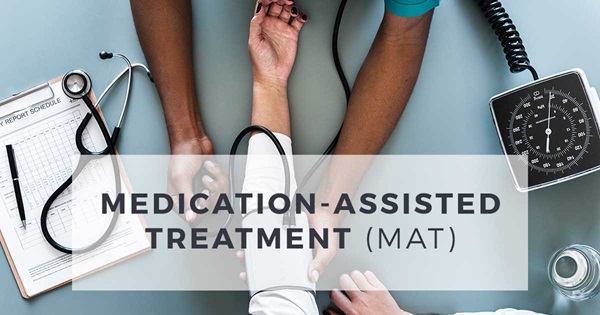
The Federal Neuropsychiatric Hospital in Maiduguri, Borno State, has revealed that a pilot medication-assisted treatment (MAT) programme, aimed at supporting drug-use harm reduction, has achieved notable successes while exposing key challenges that offer insights for scaling MAT across Nigeria.
Prof. Ibrahim Wakama disclosed this during an interview with Science Nigeria on Thursday in Maiduguri.
Science Nigeria reports that MAT combines medications with counseling and behavioural therapies to treat substance use disorders. It provides a “whole-patient” approach to address addiction to opioids, such as heroin or prescription pain relievers, but it is not a standalone treatment.
By integrating medications with behavioral therapy, psychosocial support and other wraparound services, MAT delivers optimal outcomes. It helps manage opioid use disorder (OUD) by normalising brain chemistry, blocking the euphoric effects of opioids and alleviating physical cravings—without the harmful effects associated with heroin.
Wakama highlighted the MAT pilot as a safe and feasible solution, emphasising the importance of community mobilisation and stakeholder engagement to its success.
“Collaborations with the State Ministry of Health, Ministry of Education, Catholic Diocese of Borno and traditional institutions ensured smooth implementation,” he said.
In an innovative move, the hospital converted methadone tablets into liquid form in its compounding lab to prevent misuse.
“This measure curbed the possibility of clients hiding tablets and selling them outside the programme,” Wakama explained.
He also highlighted the socioeconomic empowerment component of the programme, which he described as essential.
“Four of the six beneficiaries were employed as contract staff, reducing relapse rates and improving workplace productivity,” he added.
Despite its achievements, Wakama acknowledged that the programme faced significant challenges which include;
Inter-agency coordination: Confusion between the Federal Ministry of Health and NAFDAC over drug procurement authority.
Funding Constraints: Insufficient budget reduced the pilot duration to four months instead of the ideal six to 12 months. Key areas such as diagnostics, transportation stipends, and drug compliance monitoring tools were underfunded.
– Stigma: While largely mitigated through community engagement, some clients still faced occasional discrimination.
For future MAT programmes, Wakama recommended institutional commitment and proper planning to ensure success.
“Comprehensive budgeting for diagnostics, transportation, and monitoring tools, along with creating safe spaces for clients post-treatment, is essential. Secure storage and handling of scheduled narcotics must also be prioritised,” he said.
He underscored the importance of psychosocial and economic empowerment, warning that without such support, clients are more likely to relapse into drug use.
On the need for a legal framework, Wakama advocated for a comprehensive public health act to anchor harm reduction strategies in Nigeria. He called on the Federal Ministry of Health to sponsor an executive bill and involve stakeholders, including civil society organisations, individuals with lived experiences, and religious leaders.
“This framework will resolve inter-agency conflicts and create a supportive environment for implementing harm reduction and public health strategies,” he stated.
He described the MAT pilot as a demonstration of the transformative potential of harm-reduction strategies. However, addressing funding gaps, fostering inter-agency collaboration and establishing a robust legal framework are critical steps for national implementation.
“The successes and lessons from this pilot project can serve as a model for other states looking to adopt MAT programmes and enhance Nigeria’s approach to drug-use harm reduction,” Wakama concluded.

